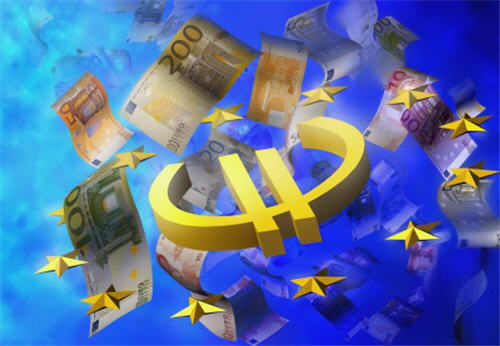
Once again, instability in one of the PIIGS threatens to destabilize the Eurozone. As with the summer’s crisis in Greece, the linchpin in the ongoing Irish mess is Germany.
CSM‘s Robert Marquand puts it bluntly, noting that the need to bail out two countries in order to save them from their own profligacy and foolishness is "shaking Europe’s core and raising fresh questions about its single currency as well as the solidarity of a union whose cooperation and stability date to the aftermath of World War II."
GMF’s Bruce Stokes says that "The Irish crisis is a reminder that Europe is involved in a slow-motion train wreck."
As in the Greek crisis, Germany’s Angela Merkel is a lone, stern voice demanding accountability and consequences. Last month, she pushed for a bailout mechanism that would require automatic spending cuts and tax hikes, with private investors taking substantial losses. Some Irish officials are bitterly complaining that Merkel’s words have made matters worse, setting off "an Irish bond selling frenzy that brought the debt-stricken country to its knees."
Gideon Rachman of the FT ("How Germany could come to kill the euro") says that his "current best guess is that the single currency will indeed eventually break up – and that the euro’s executioner will be Germany, the most powerful country and economy inside the European Union." He, too, blames Merkel’s demands for pushing the Irish economy over the edge, although he acknowledges that she’s forced to take this stance by a domestic constituency truly angry at having to bail out others, who they deem to have lived beyond their means, after having maintained a strong economy at home through substantial sacrifice.
Indeed, Spiegel "Germany Must Make Clear That its Capacity to Fund Bailouts is Limited") makes clear, that resentment is growing. And not limited to Germany.
In continental Europe, many countries have long been miffed by Ireland’s 12.5 percent corporate tax rate, which is less than half that levied by many other EU countries, including Germany. They argue that it leads to an exodus of jobs to Ireland and represents unfair competition.
[…]
Given that Germany will have to provide a considerable part of Ireland’s credit guarantees, criticism amongst politicians in the country over the Irish taxation system is growing. "It cannot be that the companies and residents in Ireland pay lower taxes than companies and residents in the countries that are providing the aid," Hartmut Möllring, the finance minister for the state of Lower Saxony, a member of Chancellor Angela Merkel’s conservative Christian Democratic Union party, told the Braunschwieger Zeitung newspaper. "Irish taxes must at least be average or a little bit above."
The finance policy spokesman in the German parliament for the Green Party, Gerhard Schick, also took aim at Dublin. Ireland, he told the Ruhr Nachrichten newspaper, had massively grown its financial sector through "unfair tax competition and lax financial market regulations."
The irony is that Germany is earning so much enmity for its demands while at the same time almost single-handedly propping up the Euro. Not only are they paying the lion’s share of the cost of the Greek and Irish bailouts but, as FT‘s Ralph Atkins ("Germany drives eurozone rebound") reports in today’s edition, "Germany has powered a marked revival in eurozone economic activity this month, according to a closely-watched indicator."
The eurozone purchasing managers’ index, covering both manufacturing and services, rose unexpectedly strongly from 53.8 in October to 55.4 in November, reversing falls in previous months which had pointed to a slowdown in activity.
Significantly, a record pace of job creation in German manufacturing shown by the survey could boost hopes of a lasting pick-up in consumer spending in Europe’s largest economy – which in turn would help ease so-called global economic “imbalances”.
The results suggested the recovery in continental Europe’s largest economies had become more self-sustaining – offering possible relief for countries such as Ireland, Portugal and Greece, which have been worst hit by the crisis over public finances.
Indeed, for all the news the Irish crisis has generated, it "accounts for less than 2 per cent of the eurozone GDP."
Regardless, Rachman sees pressure on both ends for a fissure in the Eurozone:
Germany’s actions have, in turn, created political and legal pressures in bail-out nations. In Greece, we have seen deadly riots in Athens and a senior government minister evoking the Nazi occupation of the 1940s. In Ireland, there is much lamentation about the threat to national sovereignty. on Monday, the government itself was wobbling.
It is possible that the rise of nationalist and anti-capitalist parties such as Ireland’s Sinn Féin will cause recipient countries to stick two fingers up to the EU – and to see whether life might be better outside the single currency. Countries such as Greece and Portugal might be a lot more competitive if they could devalue their currencies. But quitting the euro might feel like a national humiliation for members of the southern periphery. There is also no mechanism for quitting the euro in an orderly fashion. Any obvious preparations to do so might trigger a bank run.
So if the euro is to break up, the country that sues for divorce is likely to be a strong economy – with Germany as the likeliest litigant. The Germans would not take this step quickly or lightly. A commitment to European integration has been a leitmotif of German foreign policy for half a century.
It would behoove the weaker members of the eurozone to ensure that doesn’t happen.
James Joyner is managing editor of the Atlantic Council.
Image: europe-money_3.jpg
